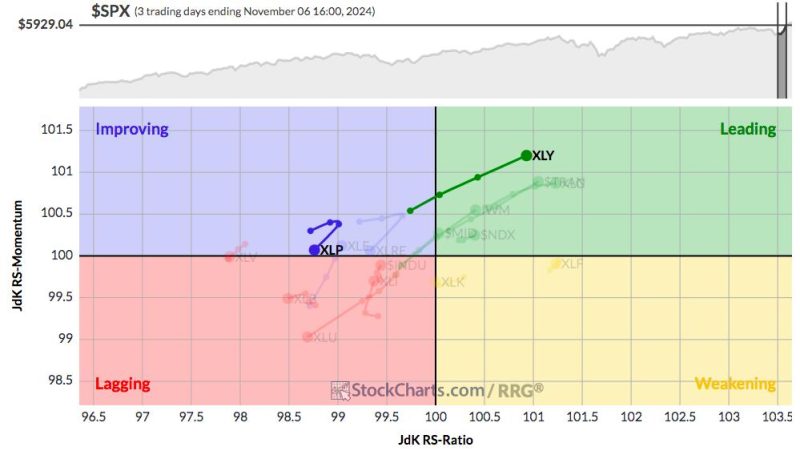Secular Bull Market Continues, Highlighting Major Rotation Trends
Market dynamics are constantly evolving, driven by numerous factors that impact investor sentiment and economic conditions. Over recent years, the global market has been experiencing a secular bull market characterized by consistent upward trends amid various challenges and uncertainties. While this bull market has brought prosperity to many investors, it has also come with its unique set of challenges, particularly concerning major rotation trends that are reshaping the investment landscape.
One of the key themes in the current secular bull market is the significant rotation in sectors and asset classes. Traditionally, investors have gravitated towards certain sectors such as technology, healthcare, and consumer discretionary for their growth potential. However, recent developments have seen a notable shift in investor preferences, with sectors like industrials, materials, and financials gaining traction.
This rotation can be attributed to a variety of factors, including changing economic conditions, evolving consumer preferences, and advancements in technology. As the global economy emerges from the challenges of the past year, there is a renewed focus on infrastructure development and industrial growth, which has led to increased investment in sectors like industrials and materials.
Furthermore, the financial sector is experiencing a resurgence as interest rates begin to rise and economic activity picks up pace. Banks and financial institutions, in particular, stand to benefit from a steepening yield curve and improved lending opportunities. This shift highlights the dynamic nature of the market and the importance of adaptability in navigating the changing investment landscape.
Another significant trend shaping the current bull market is the rise of ESG (Environmental, Social, and Governance) investing. Investors are increasingly prioritizing sustainable and socially responsible investments, leading to greater interest in companies that demonstrate strong ESG practices. This trend has major implications for various sectors, as companies are increasingly under pressure to align their business practices with ESG principles to attract investment and enhance long-term sustainability.
Moreover, technological advancements continue to drive innovation and disrupt traditional industries. Companies at the forefront of technological innovation are witnessing significant growth opportunities, attracting investor interest and fueling further market expansion. The increasing importance of digital transformation and technological disruption underscores the need for investors to stay informed and adaptable in their investment strategies.
As the secular bull market continues its upward trajectory, investors must remain vigilant and responsive to changing market dynamics. Major rotation trends are reshaping the investment landscape, highlighting the importance of diversification and strategic asset allocation. By staying informed, maintaining a long-term perspective, and embracing evolving market trends, investors can position themselves to capitalize on opportunities and navigate challenges in this dynamic market environment.
